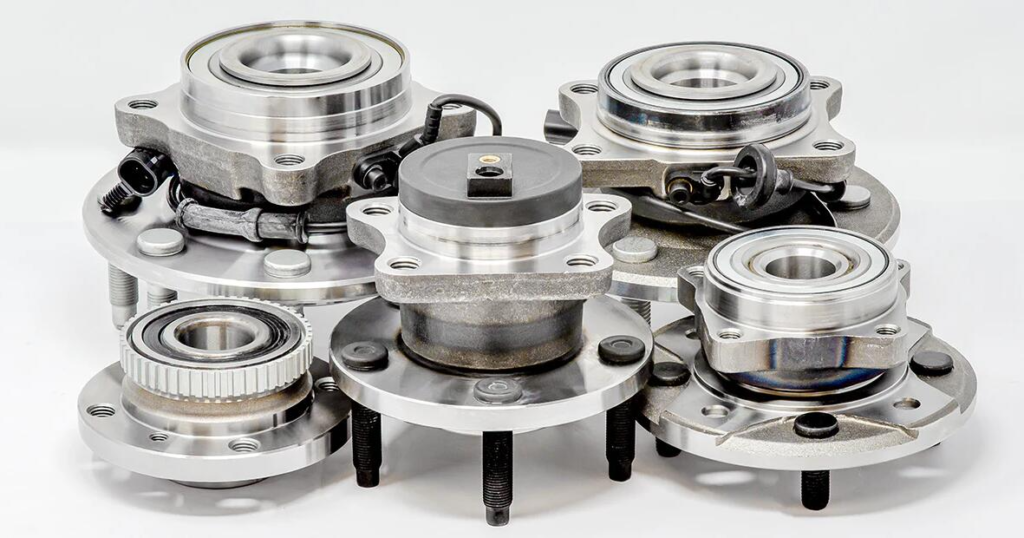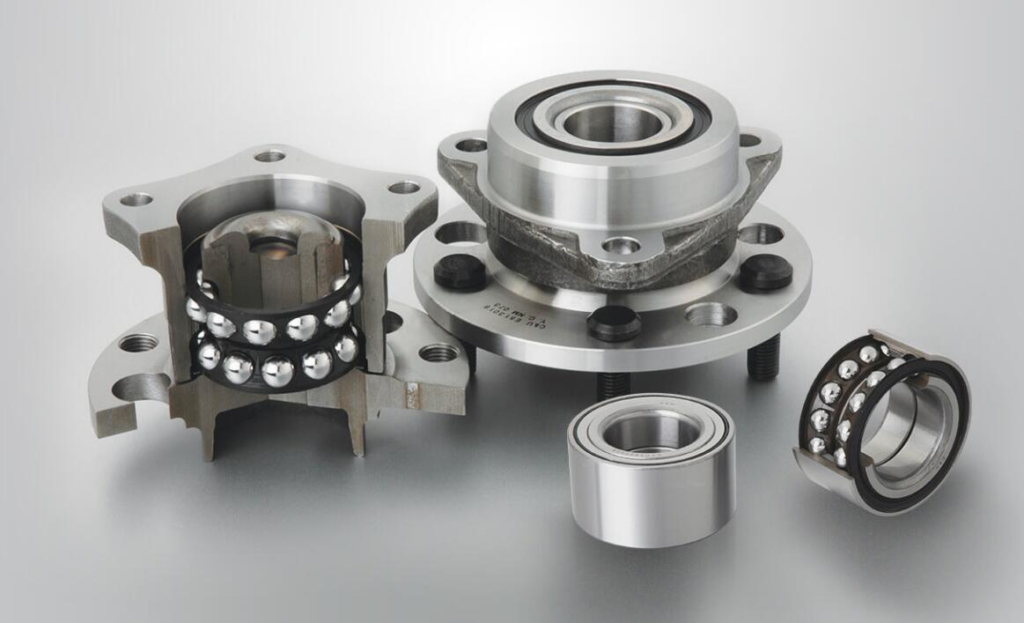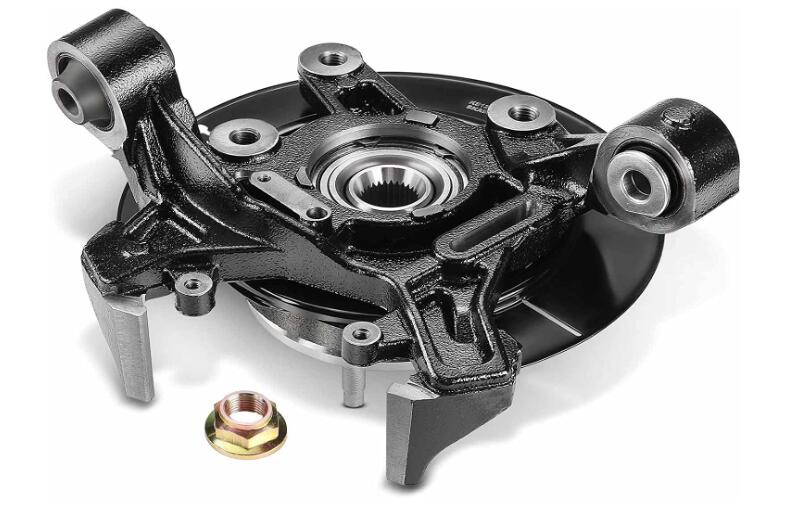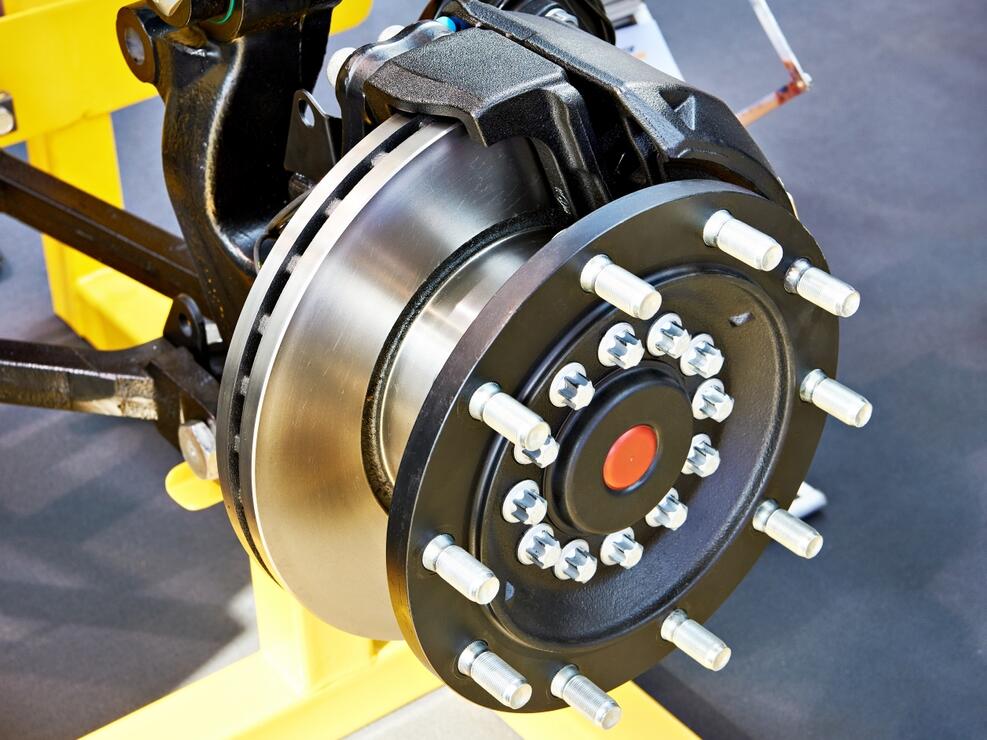Introduction:
Germany’s automotive industry, one of the world’s most innovative and mature, boasts a rich history of engineering excellence.
The nation’s car wheel bearing and hub assembly aftermarket is a pivotal part of this ecosystem, marked by rapid advancements and unique dynamics.
We will explore the German automotive aftermarket through an in-depth producer’s lens, focusing on its trends and future outlook.

The German Aftermarket Landscape
In Germany, the aftermarket is a crucial automotive industry component, providing necessary vehicle maintenance and repair parts.
The wheel bearing and hub assembly sector is vital within this space, ensuring smooth, efficient vehicle operation.
As these parts wear with usage, they generate constant demand for replacements.
Segmentation of the German wheel hub and bearing assembly aftermarket involves categorizing by vehicle type, application (front or rear axle), and distribution channel.
The German market showcases a diverse mix of sedans, SUVs, luxury vehicles, and commercial vehicles, each with specific component requirements.
Similarly, front axle applications typically see higher demand due to their essential role in steering and weight-bearing, but rear applications are equally indispensable.
Distribution channels include Original Equipment Suppliers (OES), the independent aftermarket (IAM), and burgeoning online channels.
E-commerce, with its unmatched convenience and expansive variety, is rapidly transforming the distribution landscape.

Driving Factors in the Market
Several key factors influence the German wheel bearing and hub assembly aftermarket.
The aging vehicle fleet is a significant driver; as vehicles age, wheel bearings, and hub assemblies often require replacements, fueling consistent aftermarket demand.
Consumer behavior is another important driver. As car owners become increasingly knowledgeable and tech-savvy, they often prefer regular maintenance and timely upgrades.
This behavior fosters a culture of preventive maintenance, driving aftermarket sales.
Lastly, the shift toward e-commerce is altering traditional supply chains.
More consumers prefer online purchases due to convenience, creating new opportunities for aftermarket component sales.

The Producer’s Perspective
From a manufacturer’s perspective, these market dynamics present opportunities and challenges.
Understanding customer needs and striking a balance between quality and cost-efficiency are paramount.
German consumers are known for their high expectations for quality.
Therefore, manufacturers must maintain strict quality controls, ensuring their products meet durability and longevity requirements and enhance vehicle performance and safety.
Continual innovation is another vital aspect. As vehicle technology and designs evolve, producers must regularly update their offerings.
This requires a solid commitment to research and development, a keen understanding of automotive trends, and product compatibility with new vehicle models.
Moreover, maintaining a robust supply chain is essential, particularly as online sales gain momentum.
Efficient logistics and delivery systems and top-notch customer service are crucial to a successful online sales strategy.

Emerging Trends and Future Outlook
In addition to these core dynamics, several emerging trends hold the potential to reshape the German wheel hub and bearing assembly aftermarket.
Increasing digitization is changing how businesses operate, and the automotive aftermarket is no exception.
Producers must adapt to this digital transformation by strengthening their online presence, leveraging digital tools for customer service, and optimizing their supply chains for e-commerce.
Sustainability is another crucial trend. As environmental awareness grows, manufacturers who can demonstrate sustainable practices in their production and products may gain a competitive edge.
Innovation remains a constant necessity. Advancements in material science may lead to stronger, lighter, and more durable wheel bearings and hubs.
Likewise, the rise of electric vehicles (EVs) will necessitate specialized components to cater to their unique specifications.

Customer Centricity and Quality Excellence
From a producer’s viewpoint, placing the customer at the center of all business decisions is fundamental.
This customer-centric approach can manifest as exceptional after-sales service, seamless online shopping experiences, or products tailored to specific consumer needs.
A manufacturer’s ability to meet and exceed customer expectations can significantly enhance its market position.
Moreover, the commitment to quality must be unwavering. Maintaining impeccable quality standards is essential for success in a market like Germany, known for its engineering prowess and high consumer expectations.
This quality commitment should span all aspects, from sourcing raw materials and production processes to final assembly and after-sales service.

Harnessing the Power of Digital Transformation
Digital transformation is another critical consideration for producers.
Optimizing supply chain processes, enhancing e-commerce platforms, leveraging social media for brand building, and employing data analytics for strategic decision-making are all facets of this digital journey.
Data analytics, in particular, can offer valuable insights into market trends, consumer behavior, and operational efficiency.
These insights can drive more informed, strategic decision-making, allowing manufacturers to stay ahead of the curve.

Embracing the Green Revolution and EV Wave
With the world’s sustainability goal, manufacturers should incorporate green practices.
This could include sourcing environmentally-friendly materials, optimizing production processes for energy efficiency, or investing in renewable energy sources.
The rising popularity of EVs presents a unique opportunity for manufacturers.
The transition to EVs will likely introduce new specifications and standards for wheel hubs and bearing assemblies.
Manufacturers can position themselves favorably within this growing market segment by developing products that cater to these needs.

Investing in Research and Development
Investing in research and development (R&D) is a strategic decision that can significantly impact a manufacturer’s long-term success in the German aftermarket.
This is particularly important considering the rapid pace of technological advancement in the automotive industry.
Wheel bearing and hub assembly manufacturers need to stay abreast of the latest materials, technologies, and design methodologies to develop products that meet the evolving demands of the market.
R&D initiatives could focus on developing more durable materials, designing assemblies that reduce friction and heat, or finding solutions that enhance fuel efficiency.
Collaboration with academic institutions, research bodies, and industry forums can enhance these efforts, bringing fresh perspectives and resources.

Implementing Advanced Manufacturing Practices
In addition to product development, manufacturers should also focus on improving their manufacturing practices.
Implementing advanced manufacturing techniques can enhance production efficiency, reduce wastage, and improve product quality.
Adopting Industry 4.0 practices, such as integrating IoT devices into the production line, can enable real-time monitoring of production processes, enhancing quality control and reducing downtime.
Similarly, adopting lean manufacturing principles can streamline processes, eliminate waste, and save costs.

Strengthening After-Sales Services
After-sales service is a critical factor that can significantly influence a manufacturer’s reputation and customer loyalty.
From a producer’s perspective, this goes beyond just addressing customer complaints or queries.
It involves proactive communication about product maintenance, timely recall notifications, and a smooth and hassle-free replacement process.
Providing comprehensive product manuals, maintenance guides, and DIY repair videos can enhance the customer’s product experience.
Additionally, offering warranties and guarantees can build customer trust and reinforce the manufacturer’s commitment to quality.

Enhancing Brand Image and Reputation
A strong brand image can provide a distinct edge in a competitive market like Germany.
Manufacturers should focus on building a brand that resonates with their target customers.
This involves clear communication of the brand’s values, commitments, and unique selling propositions.
For instance, if a manufacturer prides itself on its sustainable practices, it should ensure that this is communicated and substantiated through its actions.
Similarly, if innovation is a core brand value, the brand should consistently showcase its innovative efforts and achievements.

Conclusion: Accelerating into the Future
Various factors, including consumer behavior, technological advancements, digital transformation, and more, shape the dynamics of the German car wheel bearing and hub assembly aftermarket.
Manufacturers must adopt a holistic and forward-thinking approach to navigate this complex landscape.
Investing in R&D, implementing advanced manufacturing practices, strengthening after-sales services, and enhancing the brand image can drive growth and success.
While each of these strategies is impactful in its own right, their true power lies in their synergy.
These strategies can drive transformational growth when implemented cohesively and coordinated.
Indeed, the German aftermarket presents both challenges and opportunities. The journey may require navigating uncharted territories, overcoming obstacles, and constantly adapting to change.
But for those manufacturers who embark on this journey with determination, agility, and strategic foresight, the destination promises exciting possibilities.
As the German proverb says, “Wer rastet, der rostet” – He who rests grows rusty.
So, let’s keep moving, innovating, and accelerating into the future of the German aftermarket.




